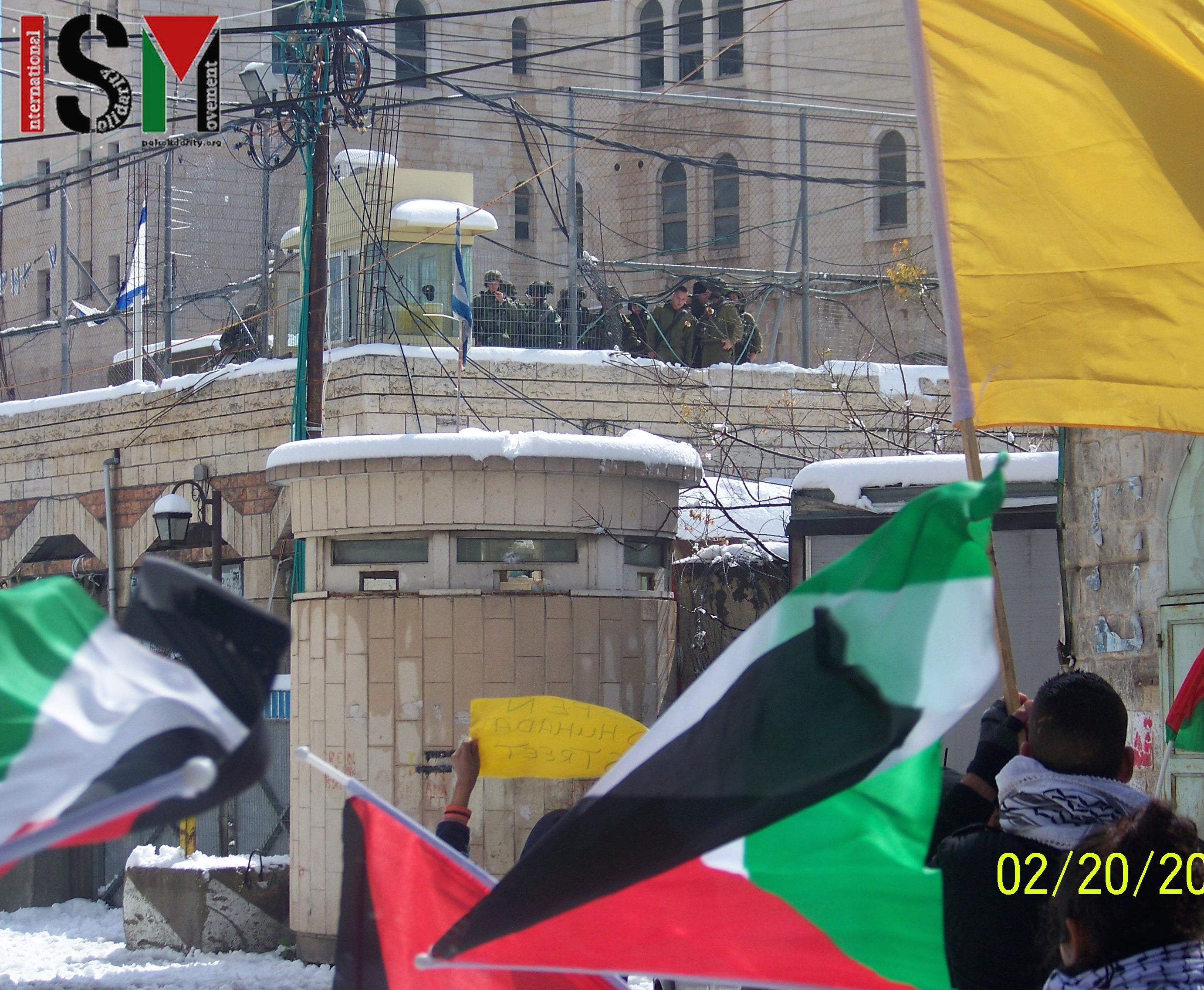Category: Photo Story
-
Escalating violence at Friday Demo in Kafr Qaddum
10th April 2015 | International Solidarity Movement, Nablus Team | Kafr Qaddum, Occupied Palestine The Israeli military did not even wait for Kafr Qaddum’s Friday demonstration to start before firing at the crowd of demonstrators today. Before prayers had finished the Israeli military began firing at the demonstration with teargas, stun grenades and rubber-coated steel bullets.…
-
VIDEO: Children assaulted and 3 women arrested at Nabi Saleh demonstration
21st March 2015 | International Solidarity Movement, Ramallah Team | Nabi Saleh, Occupied Palestine Israeli forces arrested three women in Nabi Saleh and injured several protesters, one with live ammunition, during the village’s weekly Friday protest on March 13. The demonstration was met with the usual military violence as Israeli forces threw stun grenades and fired live ammunition at unarmed and peaceful protesters. After…
-
Open Shuhada Street, demand Palestinian demonstrators
21th February 2015 | International Solidarity Movement, Khalil Team | Hebron, Occupied Palestine On February 20, Israel forces threw at least thirty stun grenades and ten tear gas grenades at a peaceful Palestinian protest. Residents of occupied Hebron (Al-Khalil) were demonstrating against the closure of Shuhada Street, a former economic centre in Al-Khalil. The street, running through the middle of…



